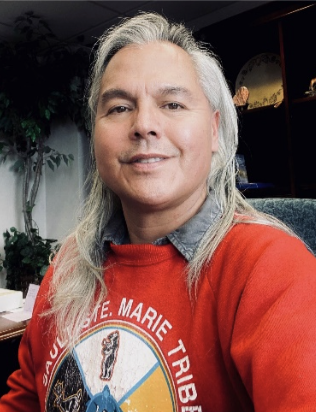Former Sault Ste. Marie Tribe of Chippewa Indians chairperson and a well known Indian Country leader Aaron Payment is ready to reenter tribal politics. On Friday, he announced he is seeking a seat on the Sault Tribe Board of Directors. The election will take place on June 27, 2024.

While serving his fourth term as chairperson of the tribe, Payment resigned in May 2022 after being censured by a political faction of the tribal board of directors. At the time of his resignation, Payment was facing allegations of wrongdoing that never led to any criminal or civil charges, nor any disciplinary action. Payment said he chose to resign because he was serving as the first vice president of the National Congress of American Indians (NCAI) and he did not want to bring any negativity to his tribe or NCAI. At the time, Payment was serving his second term as first vice president of NCAI. In total, he had almost a decade in leadership roles within the organization, including Midwest regional vice president and two terms as recording secretary.
“My institutional tribal knowledge and my experience of securing pandemic relief and infrastructure funding for my tribe will make me an asset to our tribal board of directors and our new tribal chairperson,” Payment said.
In addition to his service to NCAI, Payment served on the US Department of Health and Human Services Secretary’s Tribal Advisory Committee including as Vice Chair. He chaired the National Institutes of Health Tribal Advisory Committee, was Tribal Health Research Advisory Chair, and was on the Substance Abuse and Mental Health Services Administration Tribal Advisory Committee.
After leaving tribal elective office, Payment worked for the National Indian Health Board as Director of Government Relations, where he worked developing and deploying a successful strategy for winning congressional approval for Advanced Appropriations for Indian Health Service funding.
He currently works remotely and provides senior leadership for Kauffman and Associates, a Native woman-owned consulting management firm. Initially, he was hired as director of education. Within three months,he was promoted to Vice President of Tribal Relations and Learning and focuses on works that matters and benefit tribal nations.
Payment, who has a doctoral education degree, a master’s in education specialist, a master’s in education administration and a master’s in public administration.
CORRECTION: An earlier version of this article said the tribal election will be held on June 20, 2024. The actual date of the election is June 27, 2024.
The Sault Ste. Marie Tribe of Chippewa is loacted in Sault Ste. Marie, Michigan is the most populated federally recognized tribe east of the Missiissppi River with over 44,000 enrolled tribal citizens.
More Stories Like This
Native News Weekly (August 25, 2024): D.C. BriefsUS Presidents in Their Own Words Concerning American Indians
Native News Weekly (December 21, 2025): D.C. Briefs
Native America Celebrates the Winter Solstice
Tlingit & Haida Launch New Foundation to Support Education, Wellness
Help us defend tribal sovereignty.
At Native News Online, our mission is rooted in telling the stories that strengthen sovereignty and uplift Indigenous voices — not just at year’s end, but every single day.
Because of your generosity last year, we were able to keep our reporters on the ground in tribal communities, at national gatherings and in the halls of Congress — covering the issues that matter most to Indian Country: sovereignty, culture, education, health and economic opportunity.
That support sustained us through a tough year in 2025. Now, as we look to the year ahead, we need your help right now to ensure warrior journalism remains strong — reporting that defends tribal sovereignty, amplifies Native truth, and holds power accountable.
 The stakes couldn't be higher. Your support keeps Native voices heard, Native stories told and Native sovereignty defended.
The stakes couldn't be higher. Your support keeps Native voices heard, Native stories told and Native sovereignty defended.
Stand with Warrior Journalism today.
Levi Rickert (Potawatomi), Editor & Publisher


